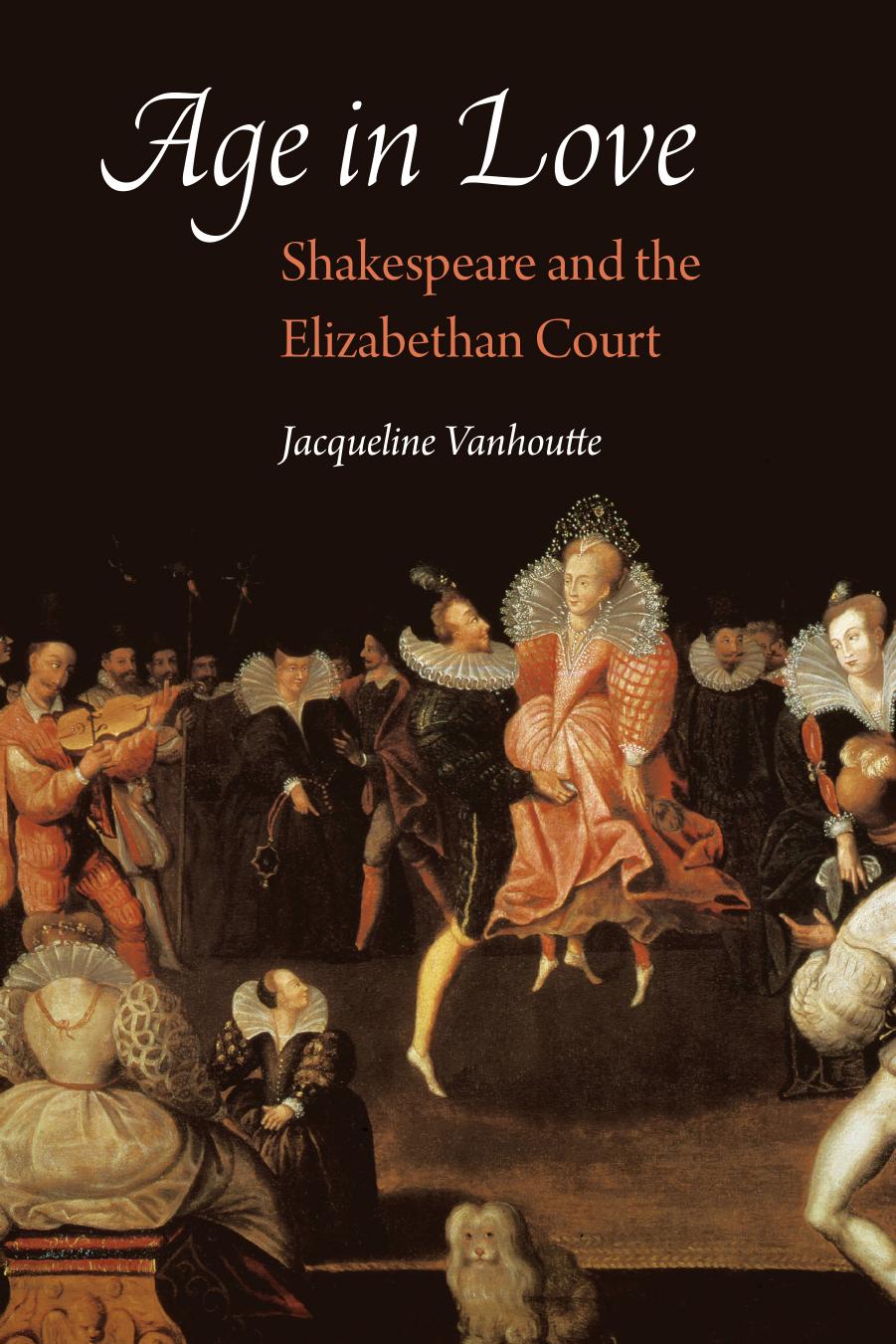Age in Love: Shakespeare and the Elizabethan Court by Jacqueline Vanhoutte

Author:Jacqueline Vanhoutte
Language: eng
Format: epub, pdf
Tags: LIT019000 Literary Criticism / Renaissance, LIT004120 Literary Criticism / European / English, Welsh, European, Scottish, Irish, English; Irish; Scottish; Welsh, Literary Criticism, Renaissance
Publisher: U of Nebraska Press
Published: 2019-06-15T00:42:41.087000+00:00
Twelfth Night finds in the experience of lost enchantment an aesthetic magic of its own. The Sonnets take up where this play leaves off, embracing the impulse to identify with the aging lover. The fate from which Viola saves Orsino haunts the sonnet speaker, who is also in love with “antique” forms and whose “besetting sin” is also “self-love” (62.1).140 In Endymion, Lyly identified sonnet-writing as an activity likely to induce age-inappropriate behavior. His hero, after devoting the “prime of his youth” to “devising sonnets” ends up “having waxed old and not knowing it”: “how could my curled hairs . . . be turned to grey and my strong body to a dying weakness?” (1.2.64–65, 5.1.74–76). It might be said of Shakespeare’s sonnet speaker that he has waxed old, and knows it, but devises sonnets nonetheless—devises sonnets, in fact, about the “dying weakness” of aging bodies. The nostalgic atmosphere of the sequence, its famous sense of generic and cultural belatedness, owes much to its invocation of an aging court. By the time Shakespeare picked up his “antique pen” (19.10), the fashion for sonnets had, along with the queen’s two eldest favorites, died away. In their evocation of “the rich proud cost of outworn buried age” (64.2), the sonnets betray an ongoing imaginative engagement with these bygone “great princes’ favorites” (25.5). The aging speaker posits a homology between himself and the favorites, grounded in what the sequence describes as a vain form of sexuality—at once futile and arrogant, biologically sterile but imaginatively reproductive.
In a sequence initially committed to persuading “fairest creatures” (1.1) to adopt the reproductive habits of the rose, Shakespeare offers royal favorites at first by way of contrast, since they are “But as the marigold at the sun’s eye, / And in themselves their pride lies buried, / For at a frown they in their glory die” (25.5–9). “Those who are in favor with their stars” can, as Leicester and Hatton did, boast of “public honour and proud titles” (25.1–2), but they die childless. The sequence’s frequent antitheses of youth and age trade in the Endymion effect, associated with the queen’s men, by reproducing in the space of a line or two the deep devastation of having waxed old without knowing it. Struck by how quickly “Sap” is “check’d with frost and lusty leaves quite gone” (5.7), the speaker pleads with the young man to reproduce before “forty winters shall besiege thy brow, / And dig deep trenches in thy beauty’s field” (2.1–2). The anxiety about procreation is linked to the court through military and heraldic metaphors, which construe aging as the attenuation of aristocratic identity, the gradual reduction of “youth’s proud livery” to “a tott’red weed of small worth” (2.4–5). A few sonnets hold the “mortal moon” who “hath her eclipse endured” (107.5) to account. Sonnet 7, for example, uses an epic simile to compare the young man to a monarchical sun, to whom all pay “homage” (3) at first,
But when from highmost pitch, with weary car
Like feeble
Download
Age in Love: Shakespeare and the Elizabethan Court by Jacqueline Vanhoutte.pdf
This site does not store any files on its server. We only index and link to content provided by other sites. Please contact the content providers to delete copyright contents if any and email us, we'll remove relevant links or contents immediately.
| Ancient & Classical | Arthurian Romance |
| Beat Generation | Feminist |
| Gothic & Romantic | LGBT |
| Medieval | Modern |
| Modernism | Postmodernism |
| Renaissance | Shakespeare |
| Surrealism | Victorian |
4 3 2 1: A Novel by Paul Auster(12356)
The handmaid's tale by Margaret Atwood(7732)
Giovanni's Room by James Baldwin(7305)
Asking the Right Questions: A Guide to Critical Thinking by M. Neil Browne & Stuart M. Keeley(5743)
Big Magic: Creative Living Beyond Fear by Elizabeth Gilbert(5729)
Ego Is the Enemy by Ryan Holiday(5395)
The Body: A Guide for Occupants by Bill Bryson(5066)
On Writing A Memoir of the Craft by Stephen King(4921)
Ken Follett - World without end by Ken Follett(4708)
Adulting by Kelly Williams Brown(4554)
Bluets by Maggie Nelson(4535)
Eat That Frog! by Brian Tracy(4502)
Guilty Pleasures by Laurell K Hamilton(4428)
The Poetry of Pablo Neruda by Pablo Neruda(4082)
Alive: The Story of the Andes Survivors by Piers Paul Read(4011)
White Noise - A Novel by Don DeLillo(3992)
Fingerprints of the Gods by Graham Hancock(3980)
The Book of Joy by Dalai Lama(3962)
The Bookshop by Penelope Fitzgerald(3829)
